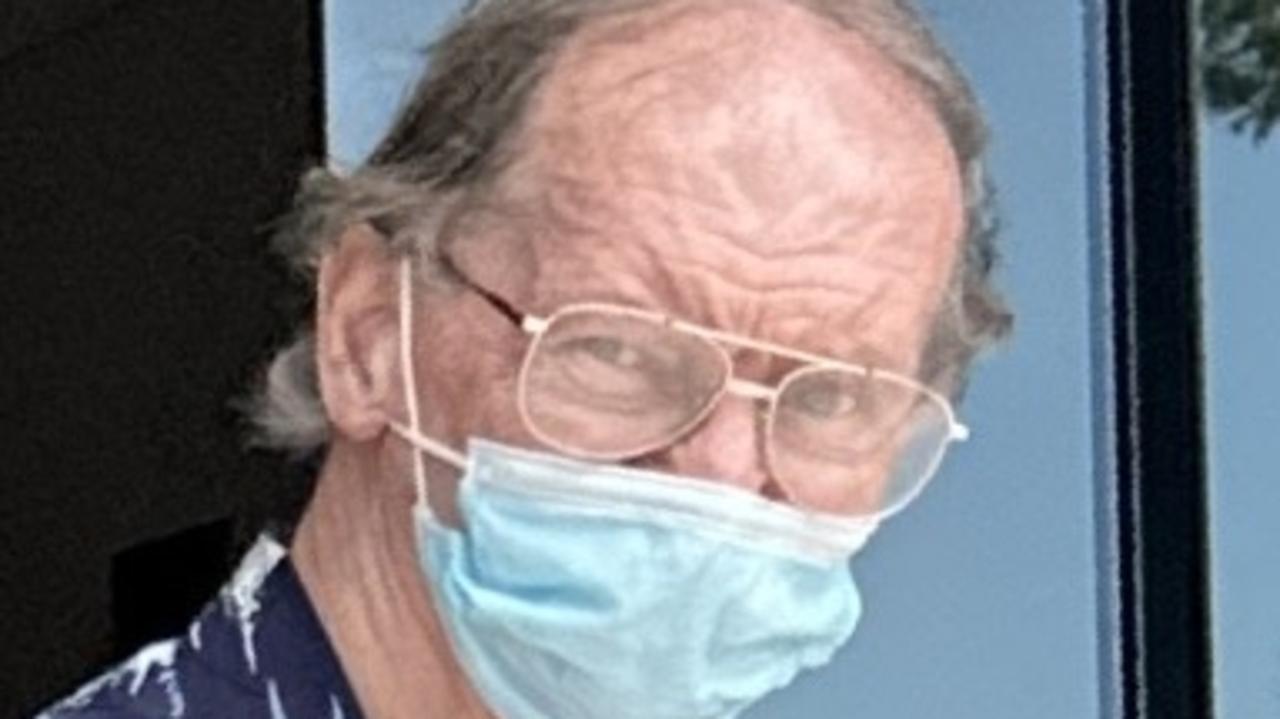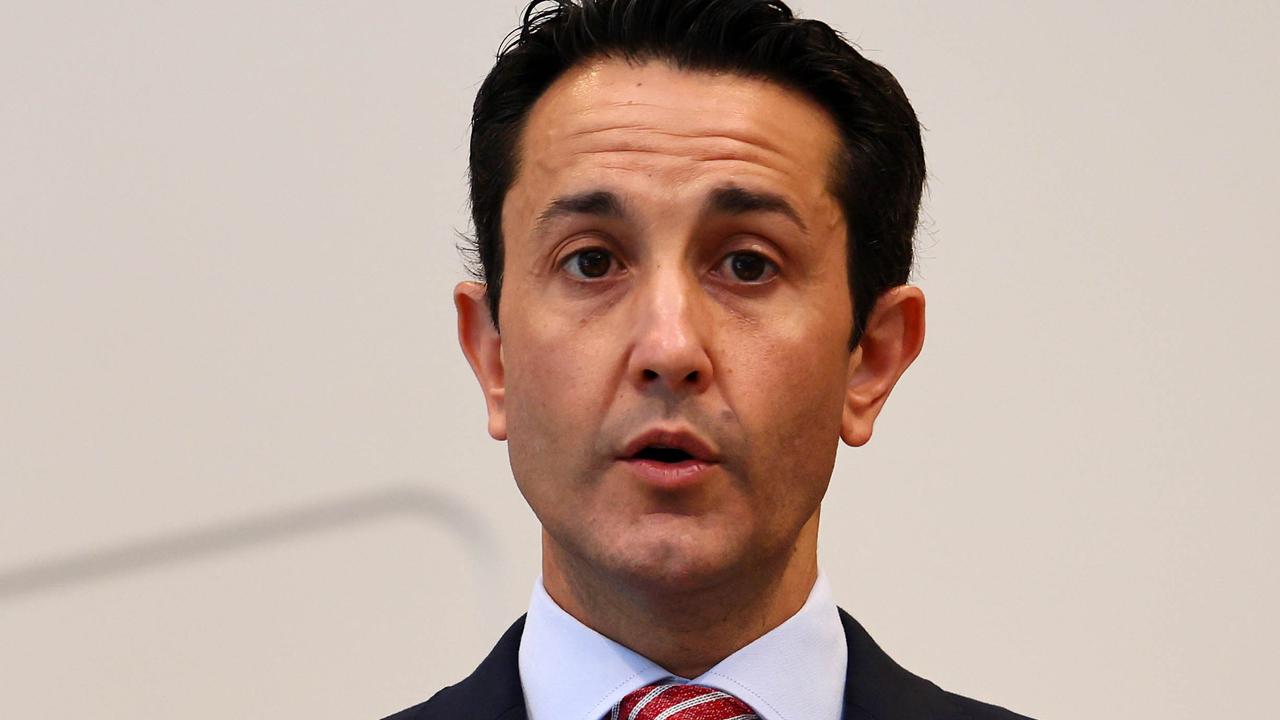Queensland Police Service adds tech detection dog Etta to its ranks
The latest recruit to Queensland’s police dog squad has been trained to sniff out technology used by paedophiles and terrorists.
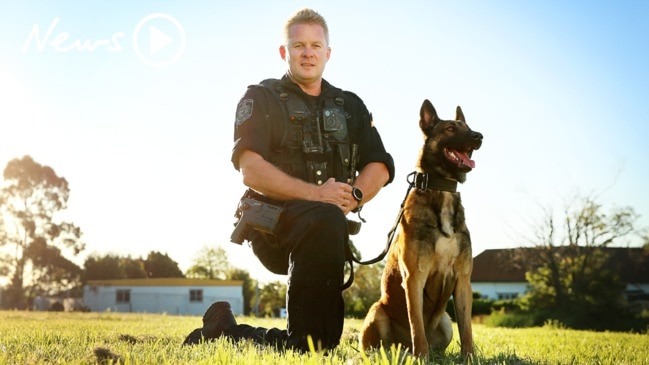
Police & Courts
Don't miss out on the headlines from Police & Courts. Followed categories will be added to My News.
Queensland’s first ever tech detection dog will soon help track down paedophiles and terrorists in a bid to discover concealed electronic storage devices that may otherwise have been missed in child abuse and counter-terrorism investigations.
In an astonishing move by the Queensland Police Service, the dog squad has specially trained one of their newer recruits to find intentionally concealed USBs, SIM cards, hard drives and other storage technologies that may house the illegal material.
The move – a first for Queensland- will see Police Dog Etta become a crucial string in the bow of police as they crack down on rising child abuse figures – with officers from Taskforce Argos charging 152 offenders with more than 1000 charges in the past two years alone.
“It is going to be the way of the future,” said Sergeant Jaye Lilley, who has been tasked with the important role of teaching the dogs how to sniff specific odours, including tech devices.
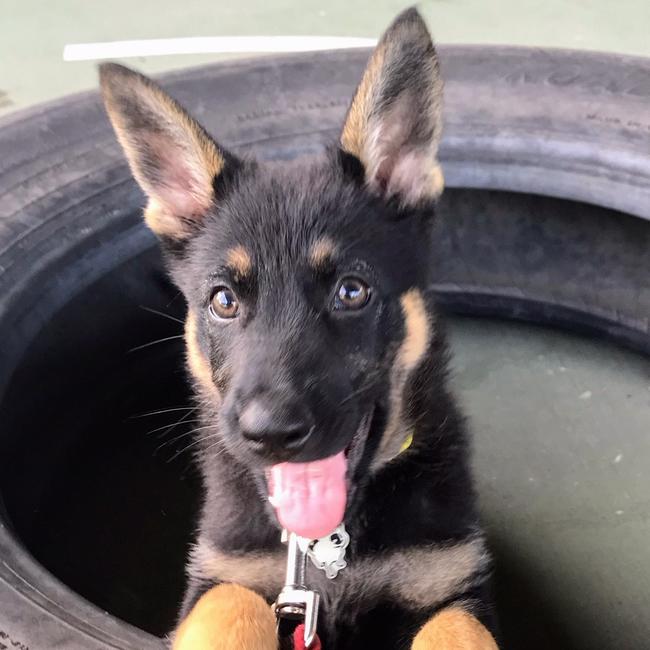
It was the role of officer in charge of the Brisbane Dog Squad, Senior Sergeant Sean Baxendell to look at where police dogs will be best utilised, and after analysing crime trends in 2016, the unit found the need for a tech detection dog.
“We’ve got the dog to the stage where it’s finding USBs and tech behind walls, so it’s still searching, but we think probably by September it’ll be operational,” Snr Sgnt Baxendell said.
The entirety of the state’s crack canine team – 88 handlers and 103 super snouts – was called to over 20,000 jobs last year alone.
The elite squad sniffed out bodies buried beneath murky river waters, drugs hidden in the legs of hollowed out wooden chairs or dirty nappies, and took down criminals in high pressure situations.
As well as catching crims, the dog squad also plays a critical role in saving lives.
Snr Sgnt Baxendell recalled a car crash in Toowoomba where a man was ejected 200m from his vehicle, down a steep decline and into dense bushland.
Search crews and infra-red cameras were unable to find the critically injured man – until Police Dog Woof came on the scene.
“We were searching through scrub, through bushland and around the wreckage and couldn’t find him,” Senior Sergeant Baxendell said.
“But within five minutes of Police Dog Woof being there, he found the man alive.”
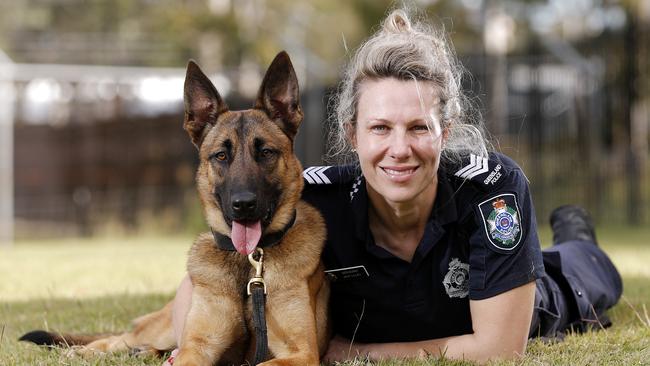
It’s the dog’s astonishing sense of smell, Snr Sgnt Baxendell believes, that is unparalleled by any of even the most advanced technology.
“There’s no technology in the world that can do what a dog does,” he said.
According to the squad, the dogs’ sense of smell is 100,000 times more powerful than their human counterparts.
They’re also able to hone in on individual scent compounds.
“When humans smell a cake, we smell the whole cake, but a dog will smell each ingredient separately – the flour, the eggs, the sugar,” Sgnt Lilley said.
As the QPS’ only police dog trainer, Sgt Lilley has the arduous task of teaching the dogs how to detect odour that will help police fight crime.
This is done from eight weeks old, while within months, the dog is able to detect even the slightest difference in smells.
The dog’s able to not only sniff out the difference between money compared to newspaper or magazines, but more astonishingly – the dog is taught to detect certain quantities of money to avoid chasing after smaller sums of cash.
If necessary, Sgnt Lilley can teach a dog to detect a new odour within a couple of days.
“I can add an odour quickly through our system. If I’ve trained my dog on cash and all of a sudden we need a firearm dog … I can get that dog through our new system within two or three days.”
Snr Sgt Baxendell said the squad will only keep excelling over time, as the need for diverse sniffing dogs diversifies.
“The limitations are humans and what the handler can do. But for the dogs themselves, there’s really no limit,” he said.
“The most amazing thing for me is looking at my staff and looking at the dogs and realising that without that dog, there would be no resolution to that crime.”

